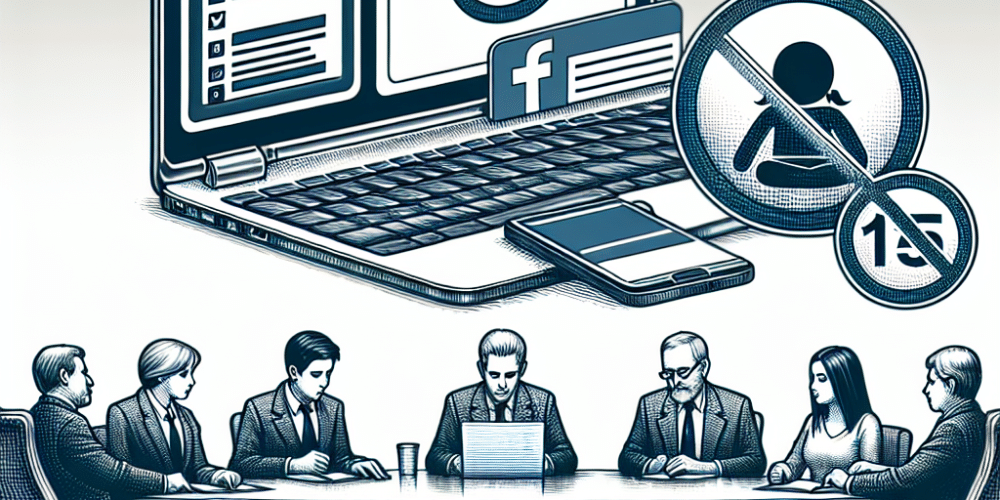GERB, the ruling political party in Bulgaria, is considering legislation that would ban social media access for children under the age of 15. This proposal has ignited a significant public discourse in the country. Kostadin Angelov, who serves as the Chair of the Parliamentary Health Committee and is a member of GERB, has emerged as a prominent advocate for the ban. In his arguments, Angelov likens the potential mental health impacts of social media on young users to those of gambling addiction.
Angelov’s concerns center around the premise that social media platforms create a cycle of dopamine-driven pleasure, which mirrors patterns seen in gambling or substance addiction. This cycle may foster neural dependency, heighten anxiety, disrupt attention spans, and interfere with normal sleep patterns. According to Angelov, a documentary featuring former engineers from tech giants like Google, Facebook, and Twitter reveals that these platforms are deliberately designed to exploit psychological triggers, ensuring that users remain engaged. One notable contributor to the creation of the “Like” button acknowledged that it was intentionally developed to provide immediate gratification, thus reinforcing addictive tendencies.
To support his stance, Angelov cites studies indicating that children who engage with social media for over three hours daily are more than 60% likely to develop depression and anxiety. Other concerning effects include diminished focus and a lack of social empathy. This phenomenon has been dubbed “digital withdrawal” by psychologists, drawing parallels with the withdrawal symptoms witnessed in substance addiction.
The issue of gambling among Bulgarian youth has been a persistent topic throughout the year. Social media platforms such as Facebook and YouTube have faced criticism for exposing minors to gambling-related content through advertisements. This has been a matter of public concern, with Bulgarian psychologists asserting that such ads tempt minors into gambling activities.
When discussing social media access for children under 15, Angelov describes the current situation as “mass addiction disguised in digital form,” rather than genuine freedom. He underscores the responsibility of adults to impose boundaries to protect children from becoming mere consumers, driven by algorithms before they have the opportunity to develop their own identities.
Angelov advocates for setting an age limit, proposing a ban on social media use for individuals under 15. He clarifies that the aim is not to restrict the freedoms of young people but to preserve their childhood, allowing them more time for play, conversation, reading, and real-world experiences.
In Bulgaria, initiatives are already in place to combat gambling among those under 18 and to aid individuals suffering from gambling-related issues from a young age. Notable among these is the “You Are Not Alone” campaign, which launched last year. This initiative aims to educate teenagers and children about the risks associated with gambling. Spearheaded by the National Revenue Agency and the Customs Agency, the campaign reached thousands of children during the 2024/2025 academic year and continues its educational mission today.
Despite the compelling arguments presented by Angelov, there are differing opinions on the matter. Critics of the proposed ban argue that social media also offers educational and social benefits, serving as a tool for learning and communication in an increasingly digital world. They contend that rather than imposing a blanket ban, efforts should focus on educating children and parents about responsible usage and digital literacy. This perspective suggests that empowering young users with knowledge and self-regulation skills might be a more effective approach than outright restriction.
Moreover, some experts raise concerns about the feasibility of enforcing such a ban. They point out the challenges in monitoring and controlling internet access, especially in a world where workarounds and proxies are readily available. Implementing a nationwide ban might prove to be an arduous task, requiring significant resources and technological enforcement measures.
In conclusion, the proposal to ban social media for children under 15 in Bulgaria has sparked a multifaceted debate. While supporters like Kostadin Angelov emphasize the potential mental health risks akin to gambling addiction, opponents highlight the educational opportunities and potential enforcement challenges associated with such a ban. As the conversation continues, it remains to be seen how Bulgaria will navigate these complex issues, balancing the protection of its youth with the realities of digital engagement in the 21st century.

David Garato is a luminary in gaming journalism, renowned for peeling back the curtain on the gaming world with his witty and insightful commentary. A decade into weaving stories from the pixelated edges of indie games to the expansive universes of AAA titles, David’s work is a thrilling blend of analysis and adventure. When not writing, he’s live-streaming, sharing his gaming exploits with an engaged and growing audience. David doesn’t just write about games; he lives them, making him a trusted guide in the gaming community.
















